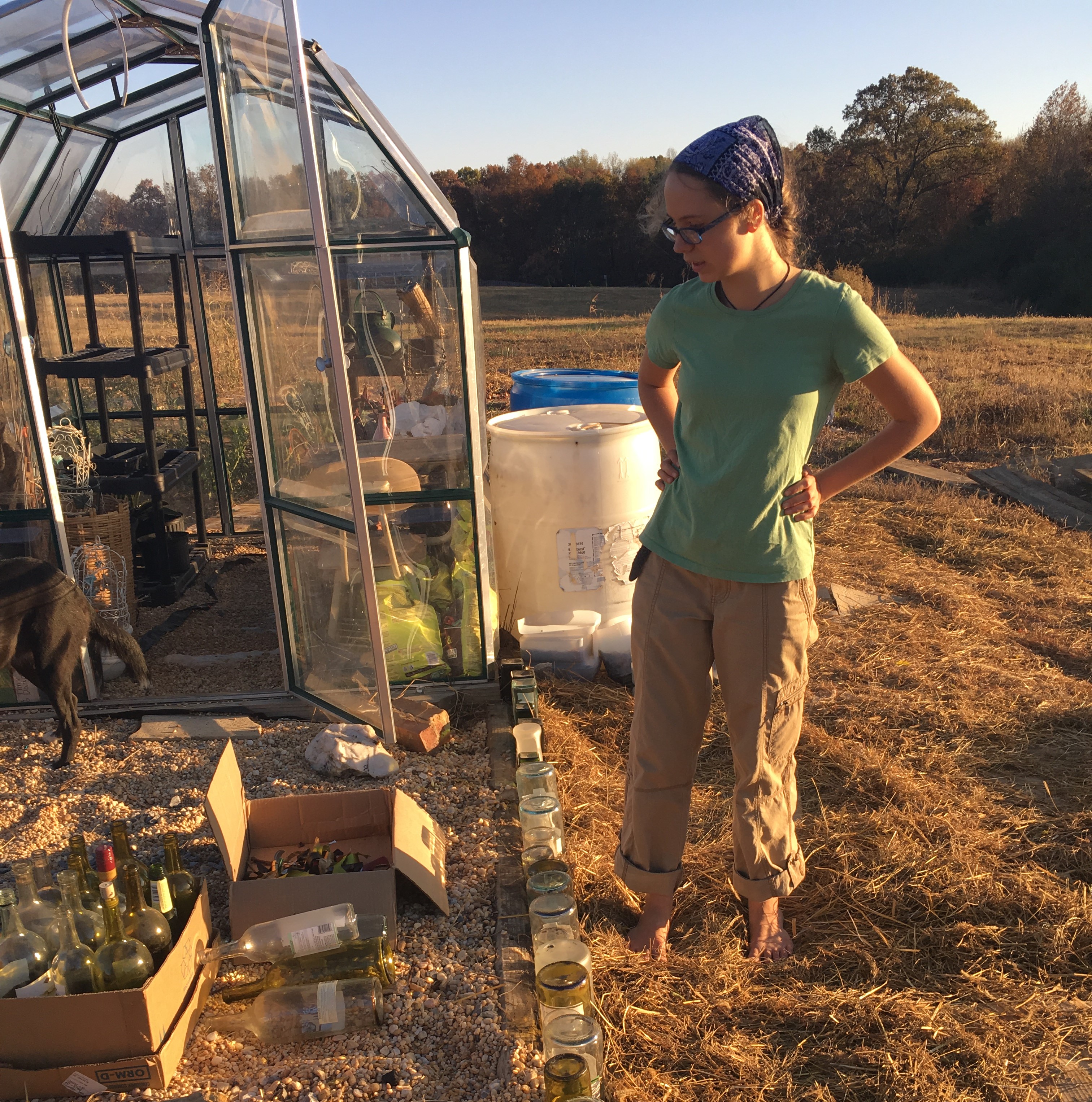Shiloh Walker, who describes herself as an introvert, loves her garden, reading and the personalized education that being homeschooled affords her.
CULLMAN – In the Walker household, school attire often consists of pajamas. That’s right, two of the three Walker children are homeschooled, and for them, lessons might start as soon as their feet hit the floor, or later in the morning, after mom, Laura Willingham Walker, has taken their sister, Tekoa, to public school.
“I don’t think that homeschooling is either a right or wrong decision,” said Walker. “It can be decided per kid, per year.”
Laura attended college at Florida University, graduating with a major in biblical studies and a minor in Koine Greek. She knew she wanted to home school her own children long before meeting and marrying their father, Ryan Walker, in 1997. The couple has three children, Shiloh, Tekoa and Jude. When the time came to make the choice about where their children would attend school, Laura had much more enthusiasm for the project than Ryan, who had some reservations, mainly concerning sports and interaction. Ryan, an extremely intelligent jock, wanted his children to experience team sports and other aspects of the high school experience; however, Laura convinced him to let her try.
She was determined to make it work, but a long battle with Lyme disease contributed to the fact that some of her children’s early education was done by Cullman’s public schools because she was extremely ill.
Later, when she was in remission, she picked up the routine, but by that time Tekoa, the middle child, had decidedly blossomed in public school, where she excelled academically while enjoying the social interactions in school. “She is a social butterfly,” laughed Laura.
In summing up their homeschooling experience, Laura reflects that she and her husband knew that one of the perks of homeschooling was the individual attention that each child would benefit from. Other considerations were the protective atmosphere, and the security that homeschooling affords. Laura is also able to interject life and religious lessons and references into her curriculum.
The downside might be, for some children, less socialization; however, the Walkers make sure that their children are well adjusted by scheduling several field trips with other homeschoolers and their families, playing sports in the summer with their peers and taking extracurricular classes, like pottery and art. Their church offers more socialization for the Walkers, who also engage in community outreach programs through organizations like The Link of Cullman County.
One of the best advantages of homeschooling, according to Laura, is that she can focus on what her children need extra attention in, something that is hard for public school teachers to do in a class full of children and a ticking clock. Homeschooling also allows the children to spend more time on the subjects that interest them most.
Seventh-grader Shiloh, for example, enjoys integrating her love of gardening with science classes, and is responsible for maintaining her own greenhouse. An exemplary student, Shiloh never enjoyed the “drama” she says was a part of her public-school experience even in elementary classes.
Jude, a fifth-grader, is easily distracted and benefits from the one-on-one attention, as well as the freedom to learn at his own speed. “He would much rather be out in the woods looking for frogs than in class,” laughed Laura, “but he has also set a goal for himself of finishing before his sister, so that keeps him on task.”
Shiloh and Jude start school at home at 8:30 a.m.; she has four 45-minute sessions, while Jude has five 45-minute sessions. Most of their work is done using workbooks approved for homeschooling curriculums.
Shiloh also takes pottery, cello and piano lessons. Jude builds intricate forts, often mapping them out on paper. “He’s very creative,” Laura observed. “He does well in hands-on projects.”
Meanwhile, Tekoa does stage performances, like the Missoula Children’s Theatre, and is currently in her fifth year with the group.
One of the obvious differences in home and public schooling is that the mothers of homeschooled children, and in some cases, the fathers, have little time to themselves. Laura even works from home, which is easier in her case, because she is an artist. “I used to take my children to the shop, but last year I started working from home, and it’s much better all ‘round,” she said. “The children got too distracted at the shop with people coming in and out.
“One of the best things about having the children schooled at home is that I can see the joy of learning being instilled in them,” Laura observed. “However, all three of our children have chosen their preferred method of learning and it is working well,” she continued. “They are able to identify what their hearts need.
“When people say that they are concerned about their children being socialized in a home environment, I think about some of the things I’ve heard that happen in public schools and I thank God that they are with me at home.”
Laura makes an extra effort to involve her children in the community. “Shiloh helps with food for the sick at church, and Tekoa makes it a point to look for kids who need to be included in school activities,” said Laura.
“I really love the personalization that is part of homeschooling,” said Shiloh. “I get to concentrate on what I am interested in, like gardening and science, that way I can learn what I need to know for later in life.
“There are homeschooling groups available, also, but I love having time to myself to read and do the things I’m interested in; however, the groups suit some people very well,” Shiloh added.
By allowing the children the opportunity to have a say in the way they learn, the Walkers say they are seeing the results- children with impeccable manners, who can carry on adult conversations and are developing their personalities in ways that will benefit not only themselves, but the communities in which they will live and serve.
The Walkers will be the first to tell you that homeschooling isn’t for everyone, but if you can identify your child’s needs, and you are financially and emotionally disciplined enough to handle homeschooling, they contend that it does provide an alternative to private or public, city or county school systems.
Copyright 2017 Humble Roots, LLC. All Rights Reserved.



























